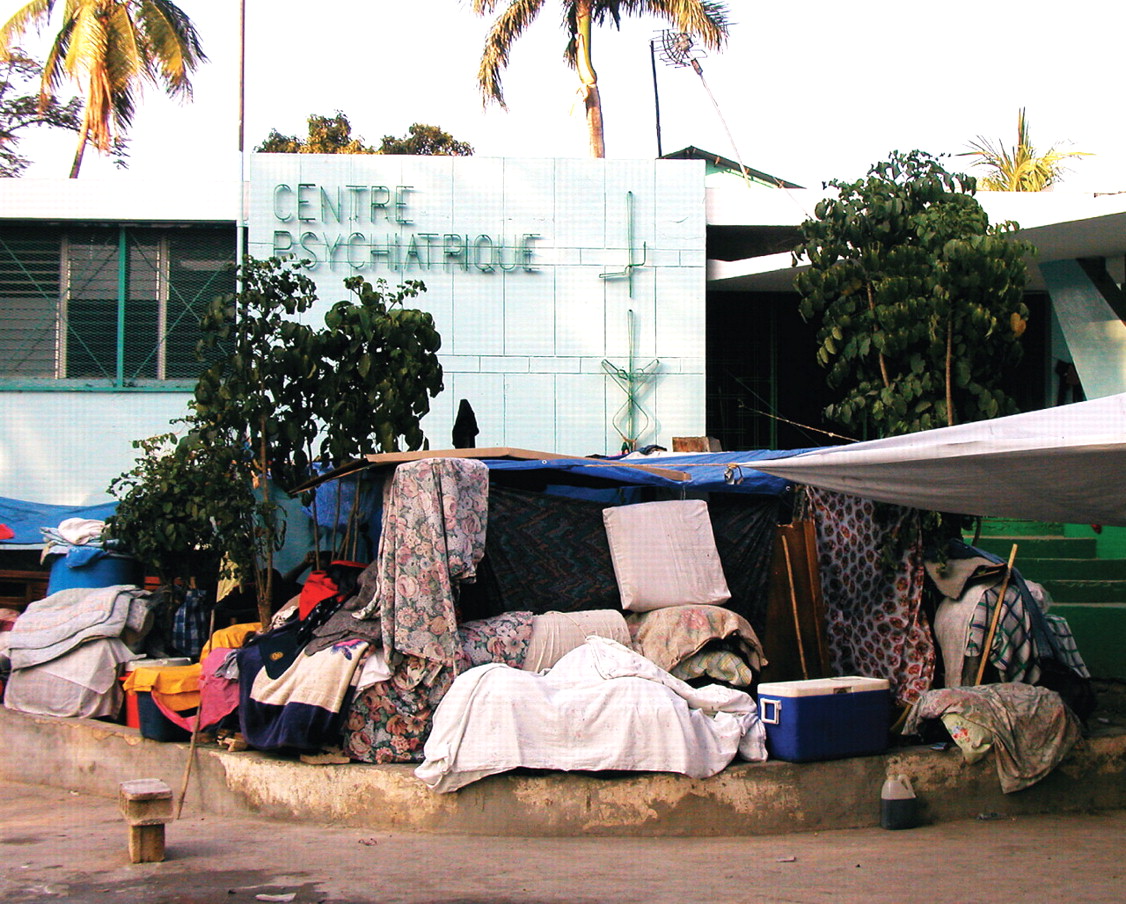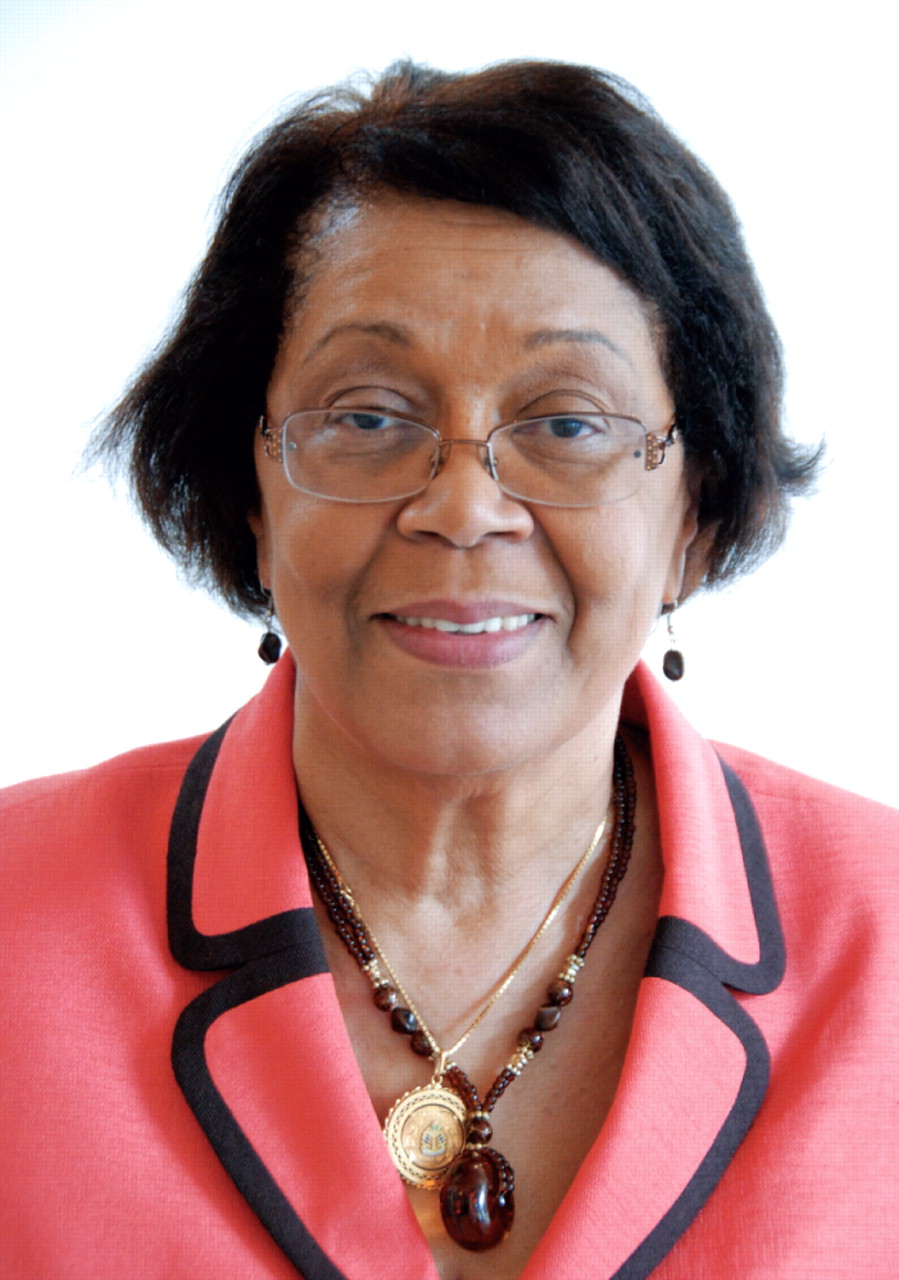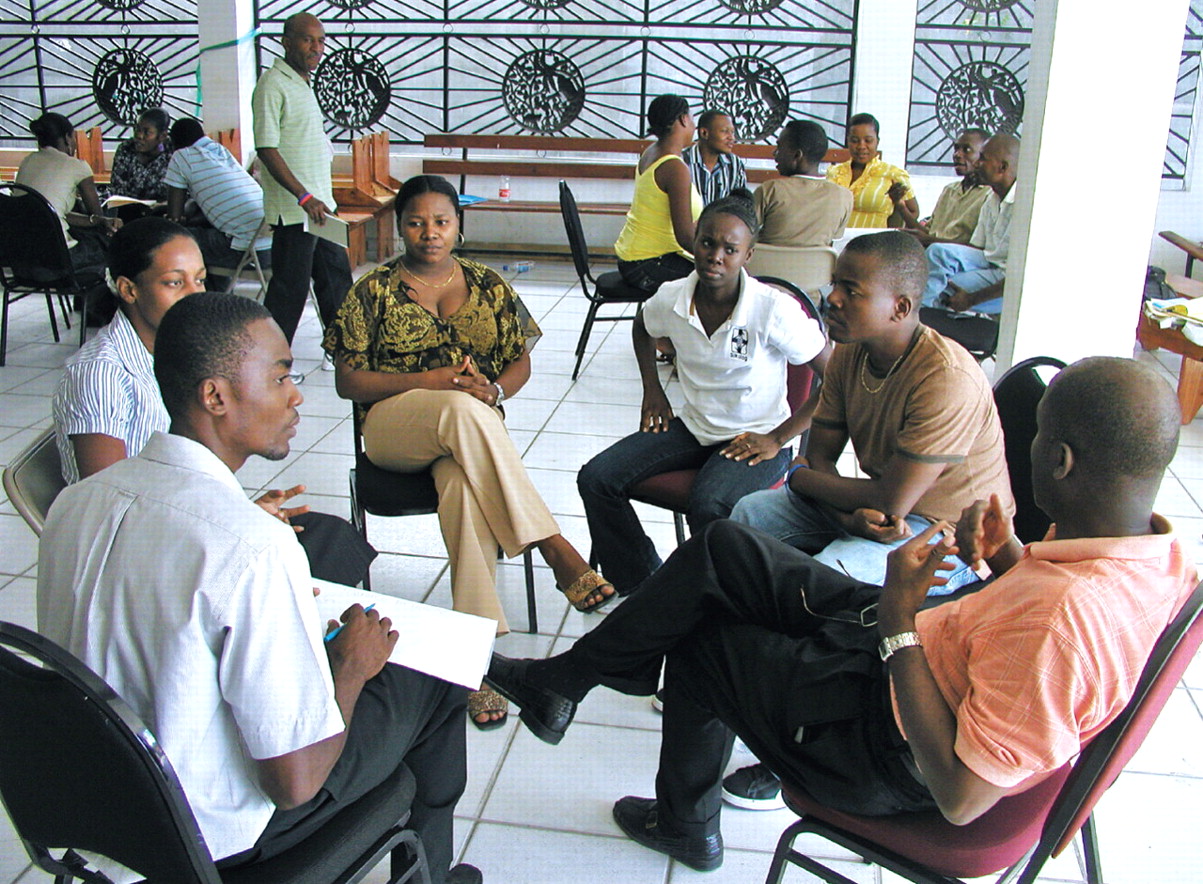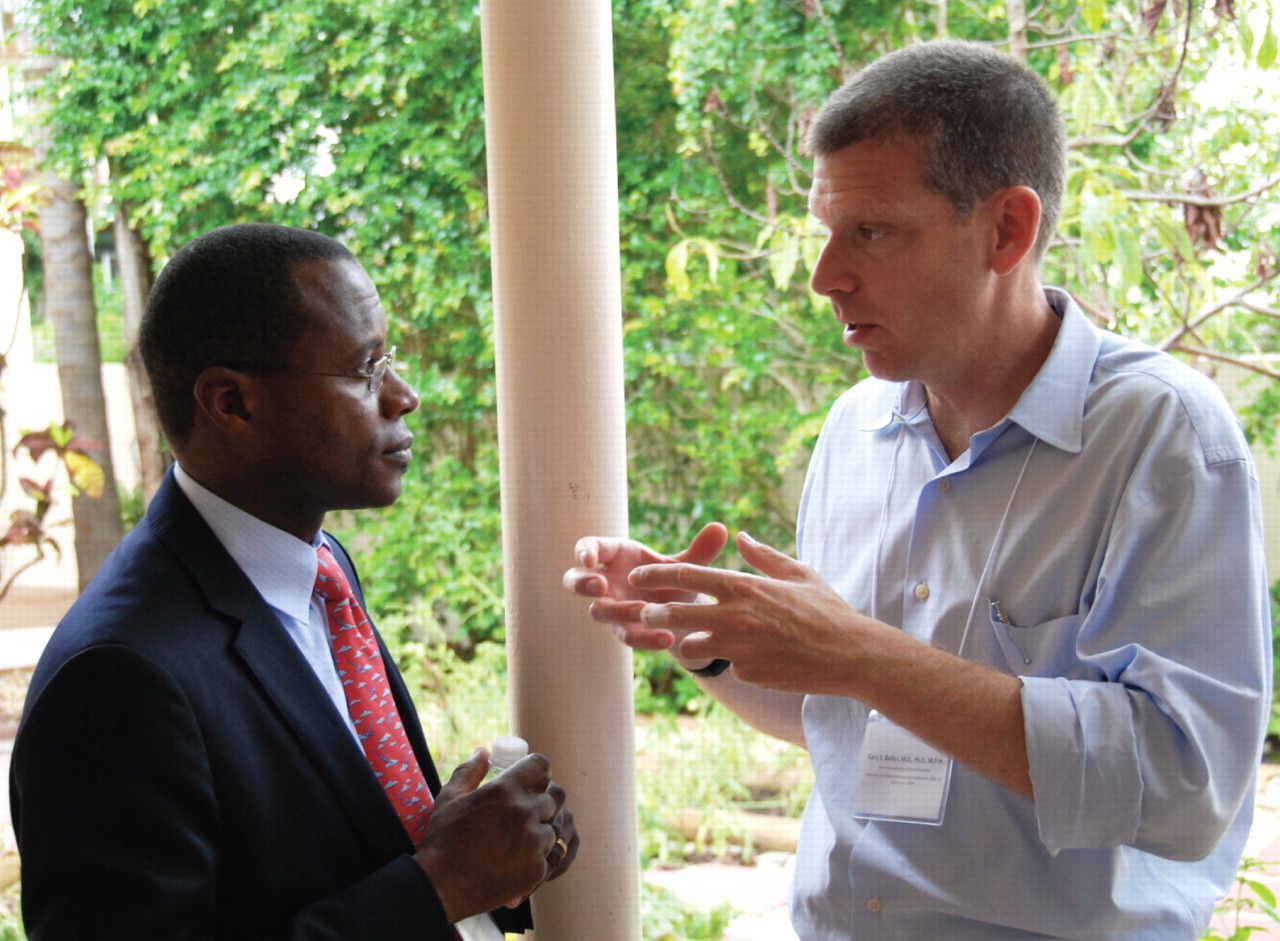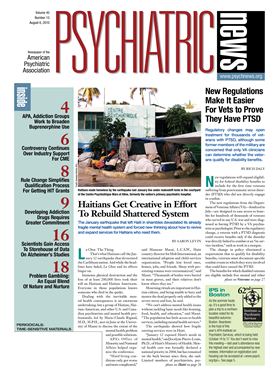La Chose. The Thing.
That's what Haitians call the January 12 earthquake that devastated the Caribbean nation. And while the headlines have faded, La Chose and its effects linger on.
Immense physical destruction and the loss of at least 200,000 lives took their toll on Haitians and Haitian Americans. Everyone in those populations knows someone who died in the quake.
Dealing with the inevitable mental health consequences is an enormous undertaking, but a group of Haitian, Haitian-American, and other U.S. and Canadian psychiatrists and mental health professionals, led by Marie-Claude Rigaud, M.D., M.P.H., met in June at the University of Miami to discuss the extent of the mental health problem and possible solutions (see
Volunteer Draws on Multiple Skills).
APA's Office of Minority/National Affairs helped organize the conference.
“Hard living conditions only got worse and more complicated,” said Mansour Massé, L.C.S.W., Haiti country director for Holt International, an international adoption and child-services organization. “People lost loved ones, homes, jobs, and friends. Many with preexisting trauma were retraumatized,” said Massé. “Thousands of bodies were buried in mass graves, and their relatives don't know where they are.”
Mourning rituals are important in Haitian culture, and being unable to bury and mourn the dead properly only added to the severe stress and loss, he said.
“We can't address mental health issues without tackling basic needs like housing, food, health, and education,” said Massé. “The population has little access to health services, including mental health services.”
The earthquake showed how fragile existing services were in Haiti.
“January 12 exposed Haiti's needs in mental health,” said Jocelyne Pierre-Louis, Ph.D., of Haiti's Ministry of Health. Mental health care was formally declared a national priority in 2004, but has remained on the back burner since then, she said. Limited numbers of psychiatrists, psychologists, and social workers meant that the response to the earthquake has been limited mainly to caring for caregivers, educating survivors via the mass media, and providing some psychological support in the makeshift camps for hundreds of thousands of homeless people.
Nearly all the pre-earthquake public psychiatric care took place in one of Haiti's two psychiatric hospitals. One of them, the Centre Psychiatrique Mars et Kline, the larger of the two, now lies wrecked, said its director, Louis Marc Jeanny Girard, M.D. The building is destroyed, and the courtyard is occupied by displaced persons living under tarps. “We need space, physical reconstruction, furniture, and medicines,” he said. The other hospital, the Beudet, appears to have suffered major damage as well, according to reports.
Post-Katrina Model Won't Work
The response by outside mental health professionals will necessarily be very different in Haiti than it was after Hurricane Katrina. Then, psychiatrists and others headed for the Gulf Coast states to back up their local colleagues.
That won't work in Haiti, an independent nation with a distinct culture whose people speak a language (Creole) that is hardly known elsewhere. Haitians will have to take the lead in building the mental health infrastructure, said many conferees. Outsiders may contribute to that process but probably through Haitian or Haitian-American practitioners whose main job will be to train more Haitians to do most of the clinical work required.
Father Eddy Eustache is just such a bridge. A psychologist, he is the director of the Department of Mental Health and Psychosocial Services for Zanmi Lasante, the Haitian health care system that operates in cooperation with Paul Farmer, M.D.'s, Boston-based Partners in Health.
Zanmi Lasante serves more than 1 million people and runs 10 hospitals and two other health centers in the Plateau Central and Artibonite departments of Haiti. It also serves 100,000 people in four displaced-persons camps in Port-au-Prince.
Before the quake, Eustache ran a program that provided psychosocial support services for adolescents and their HIV-positive parents or caregivers.
Preexisting Illnesses Aggravated
The quake added to the problems of people with preexisting mental illness, and also increased the number of new cases of posttraumatic stress disorder and depression, as well as homelessness, amputation, or being orphaned, said Eustache.
Since the quake, Eustache has worked to keep up with the increased demand for psychosocial services by hiring additional local psychologists and social workers. He is also hiring and training more community health workers to add to the 2,000 already on staff at Zanmi Lasante. Their only educational requirement is literacy, but they are given some training in psychology. They serve a vital function in providing health education, referring the ill to clinics, and delivering social support and medicines to patients' homes.
Another organization, Konbit Sante, provides an example of how efforts led by Haitians can successfully involve clinicians based outside the country, said Ralph Saintfort, M.D., director of Medical Psychiatry Service in Moline, Ill. “Konbit” is a Creole word meaning “working together,” as when neighbors collaborate to help till each other's fields, he explained.
Prior to the earthquake, more than 60 Konbit Sante volunteers provided clinical and public-health expertise and training to Haitian colleagues through the Justinian University Hospital in the city of Cap Haitien. The mental health segment of the program was established by Haitian-American doctors from the University of Miami.
Capacity Building Pays Off
For the last seven years, Saintfort and others have used clinical teaching and case consultations with nurses, interns, and residents to develop sustainable mental health capacity at Justinian Hospital.
“Since the quake, the existing relationship with the hospital has helped us build on our strengths and not start from scratch,” said Saintfort.
Konbit Sante set up a mental health triage station at a registration center for quake victims located in a nearby gymnasium. The team provided individual assessment, group psychotherapy, limited psychopharmacological intervention, and referrals to the hospital, when needed.
“We don't want to replicate existing services, but we do want to develop something that can be replicated elsewhere in the country,” he said. He is also trying to set up a health-oriented radio station to educate a wider audience about mental and physical conditions, correct health misconceptions, and encourage prevention.
“Creole is a spoken language,” said Saintfort. “The words of Haitians talking with other Haitians keep them engaged.”
The immediate crisis shows no signs of diminishing, but conference participants agreed that Haiti must develop a long-term national mental health policy, which does not now exist.
“After disasters, people start thinking about ‘responses,’ but it's more important to talk about systems, sustainability, and strategy,” said Gary Belkin, M.D., Ph.D., an associate professor of psychiatry and director of the Program in Global Mental Health at New York University School of Medicine.
Belkin advocates identifying the “pathways” needed to approach mental health care and populating them with people who have appropriate skills at each point along a stepped-care model. For instance, a community health worker might help with case finding but also with follow-up home care following specialized psychiatric hospitalization and medical management. Clinicians at every level could be supported by Haitian-American practitioners over the Internet or on short visits to Haiti.
Haitians, with their intimate knowledge of their own people and culture, will need to guide the help of outside resources in overcoming the aftermath of La Chose, everyone attending the meeting agreed.
“We must listen to local expertise,” said former APA President Pedro Ruiz, M.D., a professor of psychiatry at the University of Miami and president-elect of the World Psychiatric Association. “If we do it our way, even with the best of intentions, we may do more harm than good.”

